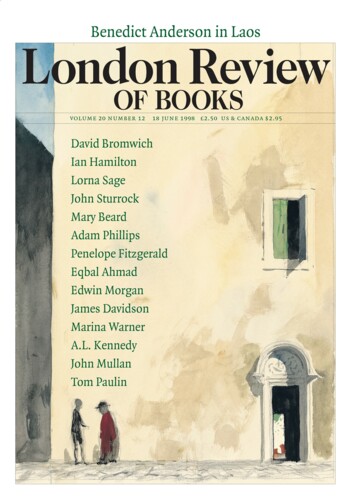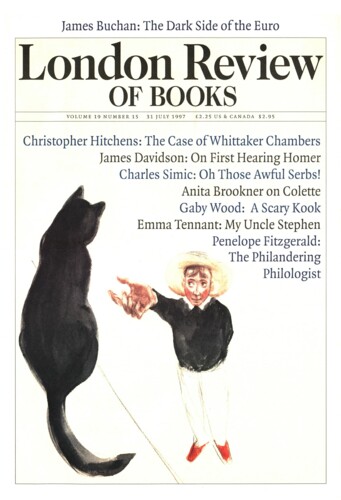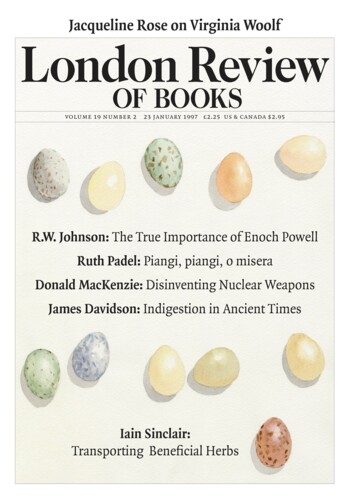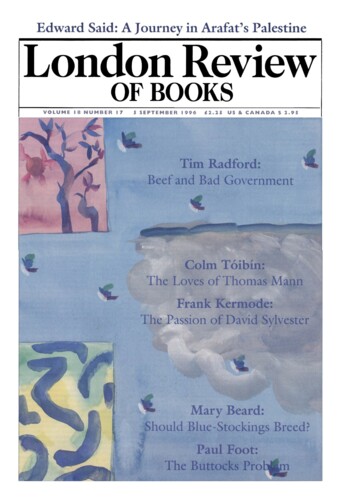Bench Space: Norfolk Girl gets Nobel Prize
Mary Beard, 15 April 1999
Women scientists – even the most distinguished of them – have a notoriously hard time. In feminist mythology at least, plagiarism by their male colleagues, belated recognition (if recognition at all) and early death (something to do with all that radiation) regularly combine to outweigh the charisma that might attach to scientific discovery. The paradigm case is Rosalind Franklin, who died of cancer at 37 and was posthumously written out of the story of the discovery of DNA, in which she had played a crucial part. James Watson’s outrageously self-heroising Double Helix systematically ridiculed and patronised ‘Rosy’s’ contributions to the work (‘Rosy’, needless to say, was a diminutive she never used herself), while at the same time portraying her as aggressive, ambitious, unsocialised, unimaginative and unfeminine. Her first appearance in The Double Helix sets the tone. Discussing the awkward relations between Franklin, a Cambridge graduate and post-doctoral crystallographer, and her London laboratory head, Maurice Wilkins, Watson writes:’‘





